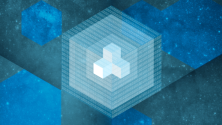2021 has been an exciting year for Kubernetes, and these articles prove it. From fun interfaces to homelabs to development environments, check out my favorite articles from 2021, K8s style.
If you are interested in the fundamentals, this article about containers on Linux clarifies how Linux containers work from the inside out. Are you more interested in having some fun? Install minikube and start managing it using the DOOM video game as an interface. An alternative to DOOM is kubectl, a more traditional Kubernetes control CLI.
Even if you only run Kubernetes on your Linux homelab, you can use tools like Terraform and Helm to automate day-to-day operations. This creates an opportunity to get better at Terraform.
One of the few things that are certain in life is that computers will fail in weird and interesting ways. Monitor your Kubernetes cluster with Prometheus and Grafana to see how it fails. Monitor the applications running inside it with distributed tracing using Grafana Tempo. Monitor how strong your monitoring is by introducing Chaos Mesh to cause intentional chaos in Kubernetes.
If you are developing applications that run on Kubernetes, Quarkus can help you develop and test. Developers using Java can use containers to run the applications on Kubernetes. Tools like Tackle-DiVA help port the applications to containers.
Like all successful open source projects, part of the value of Kubernetes is a powerful ecosystem. For example, consider the KubeEdge project, which helps move computing and data closer to the end-user. After using Kubernetes for a while, you might even want to become a Kubernetes maintainer.
With so many interesting Kubernetes topics to choose from, it may be difficult to get through them all. Still, for sysadmins and developers alike, great Kubernetes resources are a must. Give these selections a read.







1 Comment